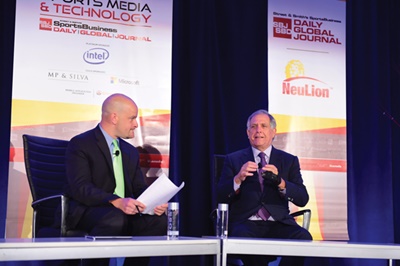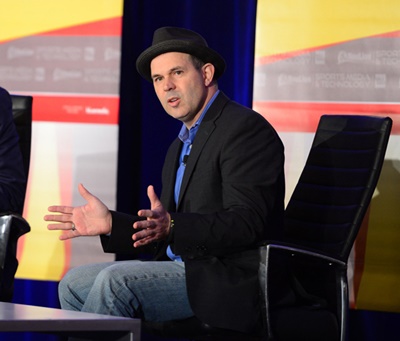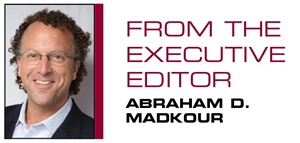I have rarely seen a relationship become so personal and crater like the one between
Bill Simmons and ESPN did. What stood out: ESPN simply became tired of having to spend so much time and emotional energy on elements of their business that they found marginal to their bottom line — both Simmons and Grantland.
ESPN parted with Simmons nearly six months ago but pulled the plug on Grantland last month. ESPN executives believed Grantland wasn’t worth the hassle, such as responding to various news reports, including Vanity Fair’s two stories about the future of the site within a week of each other.
But it’s impossible to look at ESPN’s decision to suspend Grantland without considering the relationship between Simmons and the company’s top executives. ESPN’s decision was made easier by the animus company executives and many Bristol loyalists have for Simmons.
In hindsight, it seems obvious that Grantland couldn’t (and arguably shouldn’t) survive without Simmons. But no company wants to lose a talent like his, even if it’s difficult. That kind of talent is the foundation and personality of any successful entertainment enterprise. As a New England native, I’ve admired Simmons’ writing since he was the Boston Sports Guy in the 1990s. No one weaves elements of pop culture into the emotional narrative of sports better than Simmons. I miss those skillful posts.
One of the industry’s most popular topics is if we’ve seen the apex of Bill Simmons; will his new platforms reach the audience that ESPN offered him? I still see plenty of runway with Simmons. After all, he is not starting his own network; HBO is one of the most successful channels in America. I will never bet against high-quality talent if they find the right platform. It looks like Simmons has found it.
 |
In his interview with Ben Grossman, CBS’s Leslie Moonves stressed the NFL’s importance to the network.
Photo by: MARC BRYAN-BROWN
|
> MORE ON LES: It’s easy to see why CBS Chairman
Leslie Moonves is one of the most powerful people in media and entertainment. Watching him navigate through a recent interview with my friend and former colleague
Ben Grossman, you see someone with full understanding of the issues who is not afraid to stick to his guns amid the evolving landscape. And the fact that he loves sports — he was off to Foxboro for a game that night — is a plus.
Some of his remarks that hit for me: “I’ve been hearing that network television’s been dead since the day I took this job over 20 years ago. … Network is still pretty damn important, and pretty damn successful.” On Wall Street’s reaction to the performance of media companies: “Wall Street has been looking for this digital story. ‘Digital is taking over the universe. The old guys are dead.’” On audience measurement: “Nielsen’s the only game in town, unfortunately.” CBS Sports President
Sean McManus has told me for years that he works for a boss who doesn’t allow him to lose money on sports rights, and that came to mind when Moonves noted his network’s partnership with Turner on the company’s deal for NCAA March Madness: “It’s nice waking up in the morning when the tournament begins and not saying, ‘Gee, I’m going to lose $150 million in the next three weeks.” On the network’s deals with the NFL: “The NFL is pretty important to the networks. … They know it. I must say, they use their leverage appropriately and you take it with a smile. Because guess what? You need the NFL.”
And yes, he said that last line with a smile.
> HOW DID YOU RATE IT? In my mind, the NFL/Yahoo broadcast of the Bills-Jaguars game was an unqualified success from a production and distribution standpoint. At our Charlotte offices that Sunday morning, the game was streamed mostly through Apple desktops, and it was seamless. My main issue going in was whether it would provide the same high-quality experience TV viewers are used to. It’s clear they succeeded. I agree with Yahoo’s Ken Fuchs who said, “We proved the fact that sports is ready for this medium.”
He also made a good point when he said the game proved that a digital stream can reach a global audience for a U.S.-based sports property. That’s not to say that a digital company will be ready to bid on “Thursday Night Football.” Digital and tech companies still have to answer plenty of questions, such as audience measurement — the original press release on game viewership was so convoluted that it created more negative stories than the game should have had. The ad marketplace also seems lukewarm about supporting such endeavors. Yahoo clearly saw this as a loss leader and technology test, which it was. The NFL wanted to see if this medium was ready, and it seems it can handle volume and scale.
We will see more tests, but there may be a time when the NFL’s broadcast partners want a bigger cut for producing these games or, maybe, even pull out of producing these games entirely so as to keep from helping potential competitors learn the ropes.
 |
Intel’s Steve Holmes says wearables are “persistent, intimate and immediate.”
Photo by: MARC BRYAN-BROWN
|
> WHERE ARE YOU ON WEARABLE? I don’t have any wearable technology. I probably should, especially to monitor my unpredictable sleeping habits. But I’ve been meeting with a few top executives in the space and keeping a close eye on consumer adoption and technology advancement.
Intel’s Steve Holmes, the man behind the company’s new devices group and a developer of Nike’s FuelBand, shared his thoughts on the current landscape: “The battery life is not where it needs to be. The user interface for many of the wearables is not so great and the value is for a very specific group. That value is only now starting to broaden to a larger segment.” But in a few years, wearable will be everywhere: “Wearables offer a very unique value proposition. They are persistent, intimate and immediate. They are not going away. It is going to be as expected as wearing a helmet when on your bike because not doing it will be just as stupid. You could be warned of a heart attack or another potential issue. It could send a warning that something happened and you need help.”
He envisioned where fans in the stadium can obtain data of the athletes on the field. “Possibilities would be anything if the athletes were outfitted with censors. You could know their heart rate or stress level. You could get a sense of the tension on the [pitching] mound.”
One of the bigger issues I’ve heard is still the lack of fashion and where the actual best place for the wearable is on the body. Holmes wasn’t that concerned: “We believe that the wrist is an important place. In fact, wrist worn and head worn are the two fertile grounds right now for wearables. People are comfortable wearing something on their wrist, but also glasses or ear buds on their head. From a data collection perspective, the wrist is the most convenient spot. … Head-worn devices also make a ton of sense.”
Abraham D. Madkour can be reached at amadkour@sportsbusinessjournal.com.






